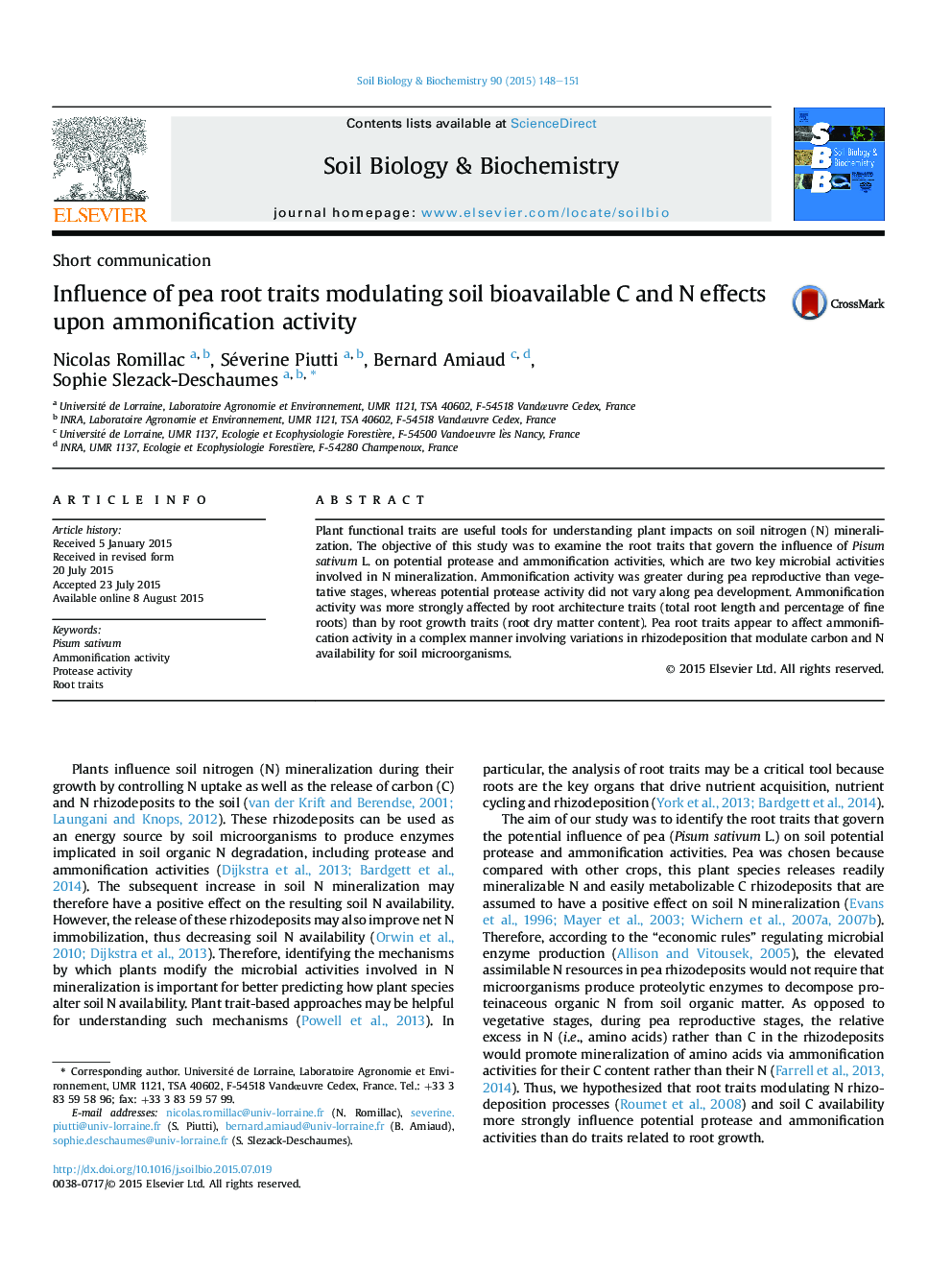| Article ID | Journal | Published Year | Pages | File Type |
|---|---|---|---|---|
| 2024387 | Soil Biology and Biochemistry | 2015 | 4 Pages |
•We measured soil ammonification and protease activities during pea development.•We measured soil variables and pea root traits as explanatory variables.•Ammonification activity was influenced by pea whereas protease activity was not.•Root traits have a higher influence on ammonification activity than soil variables.•Root architecture traits have the largest effect on ammonification activity.
Plant functional traits are useful tools for understanding plant impacts on soil nitrogen (N) mineralization. The objective of this study was to examine the root traits that govern the influence of Pisum sativum L. on potential protease and ammonification activities, which are two key microbial activities involved in N mineralization. Ammonification activity was greater during pea reproductive than vegetative stages, whereas potential protease activity did not vary along pea development. Ammonification activity was more strongly affected by root architecture traits (total root length and percentage of fine roots) than by root growth traits (root dry matter content). Pea root traits appear to affect ammonification activity in a complex manner involving variations in rhizodeposition that modulate carbon and N availability for soil microorganisms.
